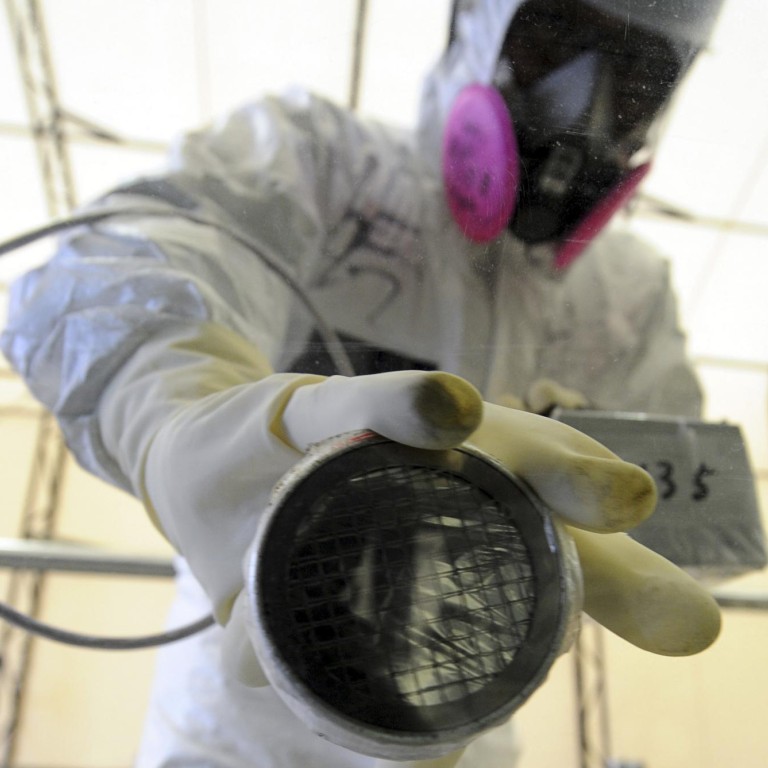
Japan's cabinet approves U-turn on plan to phase out nuclear plants
Japan's cabinet yesterday approved an energy policy reversing the previous government's plans to gradually mothball nuclear power plants, a move likely to be unpopular with a wary public following the 2011 Fukushima disaster.
Japan's cabinet yesterday approved a reversal of the previous government's plans to gradually mothball nuclear power plants, a move likely to be unpopular with a wary public following the 2011 Fukushima disaster.
But the new energy policy may be too little, too late for Japan's moribund atomic industry, which is floundering under the weight of estimated losses of almost US$50 billion that last week forced two utilities to ask the government for capital injections.
Plant operators have had to spend almost US$90 billion on replacement fossil fuels, and domestic media say they have also spent an estimated 1.6 trillion yen (HK$122 billion) on nuclear plant upgrades to meet new safety guidelines.
A recent analysis shows as many as two-thirds of the country's 48 idled nuclear reactors may have to be left closed because of the high cost of further upgrades, local opposition or seismic risks.
The plan defines nuclear power as an "important baseload power source", meaning it can feed constant power to the grid to meet minimum requirements.
However, the policy document did not specify the share of nuclear in the nation's energy mix.
"Given the slim realistic prospects for a major nuclear share, the challenge will be flexibility and the whole baseload concept flies out of the window," said Mycle Schneider, a Paris-based independent energy consultant.
The government also named coal-fired and hydropower plants as baseload sources.
"The plan makes it clear we will reduce reliance on nuclear power through a variety of measures," industry minister Toshimitsu Motegi said after the cabinet meeting.
Makoto Yagi, the president of Kansai Electric Power and chairman of the electricity industry's association, said the industry wanted the plan implemented steadily, as a core national policy.
"We will also contribute to national energy policy by utilising nuclear power, based on the fundamental premise of ensuring safety," Yagi said.
Japan would do as much as possible to increase renewable energy supplies, Motegi said.
The government has set up a ministerial-level group to study boosting such energy sources.
In the plan endorsed yesterday, Japan says it will aim to surpass the renewable energy targets in past plans.
A footnote in the document says previous plans set a target for renewable energy sources to contribute 13.5 per cent of total power generation in 2020 and about 20 per cent in 2030.
Renewable energy sources, including hydropower, contributed about 10 per cent of the country's energy by 2012.

